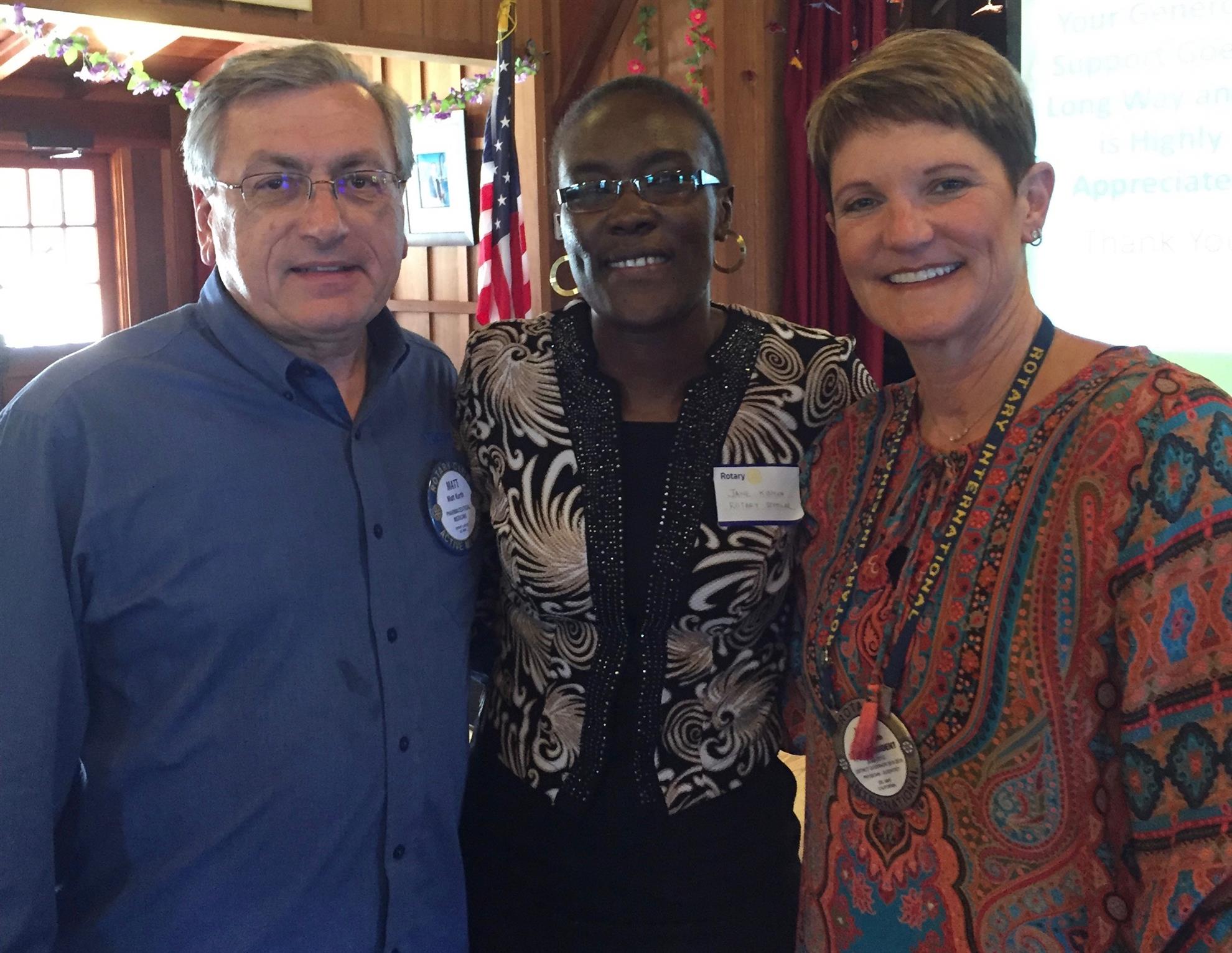
Jane Kinyua (center) with her Rotary Host Parents Matt and Janice Kurth
Rotary Global Scholar Jane Kinyua was the speaker at our April 12, 2018 meeting when she presented on Children’s Peace Initiative (CPI), a project that she co-founded. Jane expanded on the brief presentation she gave in October 2017 that outlined how CPI undertakes five interventions to engage children to break the cycle of tribal conflicts between communities in northern Kenya. In this presentation, she discussed a collaborative study to assess the impact of CPI on the communities it serves.
For years, communities in northern Kenya have endured a violent cycle of tribal conflicts. CPI was founded with the vision of engaging children to break this cycle of violence. Jane described five interventions that CPI undertook to help children view members of neighboring tribes in a more positive way.
She highlighted indicators of peaceful co-existence between communities, including doing business together, visiting neighbors, free movement of people and animals, as well as letting animals graze in neighboring regions. The increased frequency of many of these indicators, particularly doing business together and visiting, could be directly tied to the friendships that CPI helped foster.
Jane introduced Mama Caleb as an example of CPI’s success. She explained that when women in Kenya become mothers, they often gain a new name: “Mama” followed by the name of their firstborn. Mama Caleb is a widow who works very hard, but tribal conflicts made it difficult for her to provide for her children. Sometimes her family would sleep under their beds rather than on them to avoid the bullets. Caleb was an early participant in CPI, through which he developed friendships with children in neighboring communities. Kenyan society is very interconnected, so Caleb told members of his extended family and church members about his new friends and his fun with CPI. His participation encouraged the growth of CPI as more families felt safe in letting their kids join CPI.
As a result of CPI, Mama Caleb could increase both her harvest and her livestock holdings, allowing her to feed her family and generate additional income. Mama Caleb is only one family among the many that the efforts of CPI helped. The assessment of CPI indicates that over 33,000 family members have benefited from CPI since the program began in 2012, and, best of all, there have been no ethnic-related deaths during this period.
With the advent of peace, these communities now have a strong foundation to address other issues that they face, including improving hygiene and sanitation, access to clean water, and educational facilities.
Upon completing her studies at the Joan Kroc School of Peace at USD next year, Jane plans to return to Kenya to apply what she has learned and build on the success of CPI. Jane gave a very special thanks to her host parents, Janice and Matt Kurth, and expressed her gratitude for funding from Rotary International, which helped support CPI.